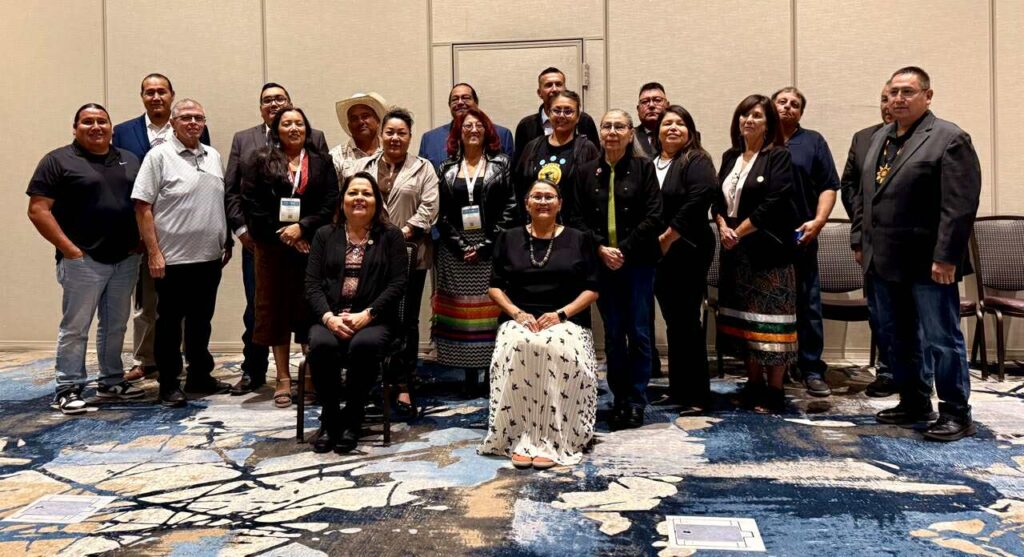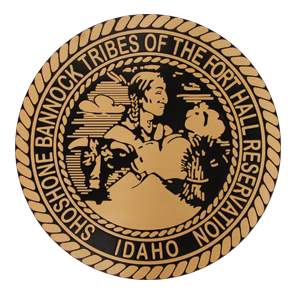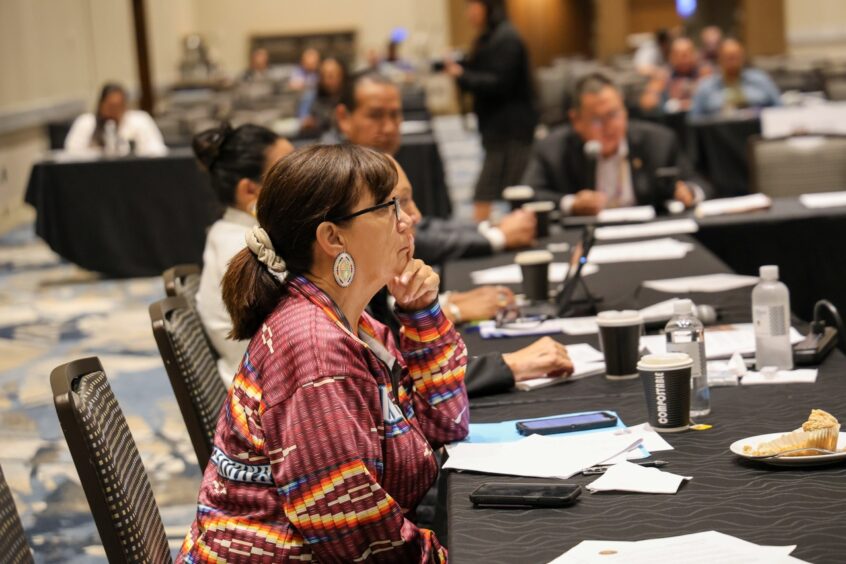By ROSELYNN YAZZIE
Office of Public Affairs
LAKE PRIOR, Minn. — Fort Hall Business Council Chairwoman Donna Thompson pressed federal officials on critical issues facing the Shoshone-Bannock Tribes during the Coalition of Large Tribes (COLT) Quarterly Meeting, September 9–11 at Mystic Lake Casino Hotel. There were 12 Tribal nations gathered to address shared concerns ranging from public safety and healthcare to land management and federal trust responsibilities.
On the opening day, Scott Davis, Acting Assistant Secretary for Indian Affairs and Senior Advisor to Secretary Burgham, provided an update. Thompson directly questioned Davis about the Bureau of Indian Affairs’ reorganization plan and whether superintendents would continue to oversee multiple reservations or return to one reservation each. She also raised the severe probate backlog, which continues to delay Tribal families for years.
Thompson said. “We have more than 500,000 acres of land, yet only five BIA administrator staff oversee it. That is unacceptable. We need the federal government to honor its trust responsibility and deliver services our people can count on.”
Davis responded that tribes would be consulted in the reorganization process and that probate remains a high priority as they work toward a more tribal-friendly system. He told tribes he and his staff would be willing to meet on their tribal lands if invited.

In addition to structural challenges at the BIA, Thompson later spoke about healthcare and public safety. She urged federal officials to ensure COVID-19 vaccines remain available to elders and those with chronic illnesses, noting the high rates of diabetes in Indian Country. She also joined other leaders in calling attention to the shortage of law enforcement officers, outdated contracts, and the lack of retirement benefits that make recruitment and retention especially difficult for large land-based Tribes.
“The Coalition of Large Tribes is where large, land base tribes come together with one voice,” Thompson said. “When we stand united, we remind the federal government of its obligations under our treaties and its responsibility to protect our people, our lands, and our future generations.”
Throughout the three-day meeting, Tribal leaders also discussed economic development, food sovereignty, land conservation, and legislation. Presenters included officials from the Department of the Interior, USDA, the Federal Reserve Bank of Minneapolis, and the Government Accountability Office.
Thompson emphasized the importance of COLT as a space where Tribes not only address federal policy but also share victories and challenges with one another.
“By raising the Shoshone-Bannock Tribes priorities on the national stage, we strengthen our place at the table,” she said. “We will continue to work with COLT and our sister Tribes to make sure our voice is heard and respected.”

